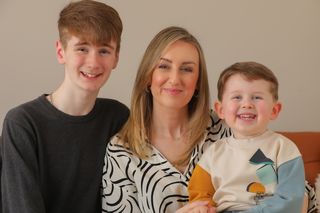Startup Diary: It's now time to ask investors to put money into voxgig
Meetup: By running events using our own system we can get a feel for what our customers need. Stock image
It's time for another investor update. If you're a regular reader, consider yourself an honorary investor in voxgig - you are investing your time reading about my startup after all. We've discussed investor updates previously. The idea is that you send out a detailed monthly or quarterly information sheet to the investors in your company explaining, with numbers, how things are going. You get a taste of these updates in this column on a semi-regular basis and with as much information as I can safely share.
An investor update has seven sections: The Basics; The Numbers; The Team; The News; The Problems; The Money; The Ask. Let's jump right in.
The Basics: We're a Software-as-a-Service event management platform that reduces the manual labour cost of running conferences by providing modern collaboration tools for organisers, speakers, sponsors and attendees.
That last sentence is our new 'elevator pitch' (as developed in last week's article). Our value proposition for stakeholders in the event industry is that we increase the effectiveness of events as a sales channel for sponsors and exhibitors by reducing the inefficiencies and inaccuracies of measuring the return on investing in events as part of your marketing mix. Our customers reach us directly by signing up on our website, and using it for each event that they organise, attend, speak at, or sponsor.
We're running a series of private trials to validate the value proposition with some of the key stakeholders.
In fact we've just completed our first trial - a 'call-for-papers proposal review process'. We had all of six users on our system. Woohoo!
On a more serious, and insomnia-inducing note, we're now aiming for late January for our public launch. That's when we'll open our doors to the public and you're finally be able to register and take the system for a spin.
The Numbers: we have one completed trial about to move to phase two; two trials about to start, and two more in planning. We aiming for seven active trials by year-end.
Our newsletter for conference speakers continues to grow, and we can now reliably add about 400 subscribers a month.
Monthly growth numbers (which we read as a proxy for underlying interest in our platform) since launch in September 2017, are: 45, 133, 192, 431, 668, 815, 1,231, 1,521, 2,167, 2,493, 2,935, 3,652. (Note that these numbers are changed from the previous report as slow readers may open the newsletter weeks after publication).
Our stretch goal is 10,000 subscribers by year-end, and we'll be using a new podcast and increased social and content marketing to push for this.
The Team: now five employees and five contractors. Startups are dynamic workplaces and you will tend to use a lot of contractors in the early days to make up for gaps in the team.
One thing we have focused on is knowledge transfer - getting more experienced contractors to design and build systems for less experienced permanent staff to execute.
A good example would be our LinkedIn outreach campaign for newsletter subscribers.
We are hiring. We need a junior software developer, and marketing person who understands the Software-as-a-Service model. It's tough our there at the moment -there are loads of high-quality jobs at great companies and startups, so we're going to have figure out how to use our remote-working and family-friendly culture to find people who might not fit in elsewhere.
The News: we're working on the next design iteration of the website. The design of the Minimal Viable Product website was intentionally quick and dirty. Now we need to give it a professional polish. This is not a re-branding - we already did that once and it was painful enough (remember good old 'metsitaba'?). We're very happy with our logo and colours.
No, this is about using a great contract designer to take things to the next level and provide us with a 'design language' that we can use to provide a great user experience.
Our two monthly meetups, EventProfs Dublin, and Microservices Dublin, are both back in gear after the Summer. Microservices Dublin last week had 49 attendees, which is pretty good going for a hard-core tech meetup.
EventProfs Dublin will be on September 13 (search for us on meetup.com) and we're looking forward to growing the attendance even higher. We run meetups because you have to 'eat your own dog food' - by running events using our own system, we feel the pain of our customers.
We are also planning to relaunch the EventProfs meetup in London in October - watch this space.
And there are three other launches coming up: on September 26 I'm launching my book about microservices (our tech platform) in Hodges Figgis - that should help with recruiting software developers.
Our Podcast will launch in the first week of October (sound editing is underway), and we'll be starting a new newsletter for event organisers in October. So not much sleep.
The Problems: finding software developers is the big one, and I don't think that's going away anytime soon. We are using contractors, but that is expensive.
In general it's not great not to be building the technical team, and the only reason we're not hurting too much on execution is my own technical background.
I can continue to perform the CTO role, but eventually this issue will need to be fixed. This is a burning fire, but as I've said before, sometimes you've got to live with them in a startup. The important thing is to know that they are there.
The other problem that we have is a lack of formal goal definition for the team.
This is a tricky one. In the first year of a startup, there is so much uncertainty that goals can be counterproductive.
If your goals are based on false hypotheses about the business, you're go full steam into a brick wall.
But a business and team does need goals to drive delivery and execution. We're now at the point where a formal Objectives and Key-Results (OKRs) style structure is becoming necessary.
I will write more on that later in the year once we've come up with a structure.
The Money: we are about to start raising a seed round. Yes, it's finally time. We have enough validation now to justify asking investors to put their money into voxgig. That means we need a pitch deck, so I'm going to spend the next few weeks talking about building and delivering pitch decks. It's an essential part of the startup skill set.
The Ask: how can you help? Come to our events!
Richard Rodger is the founder of voxgig. He is a former co-founder of Nearform, a technology consultancy in Waterford.
Join the Irish Independent WhatsApp channel
Stay up to date with all the latest news














